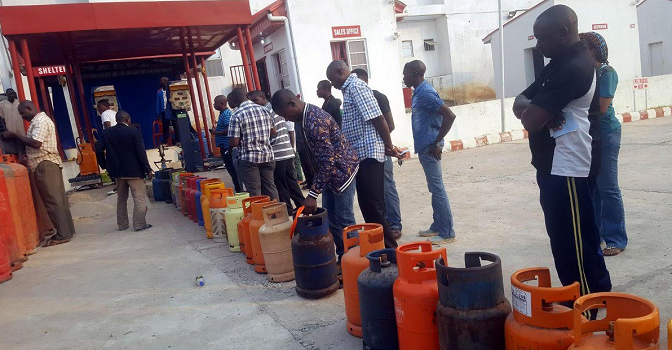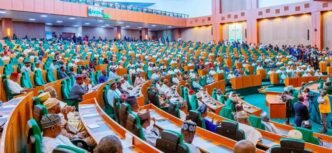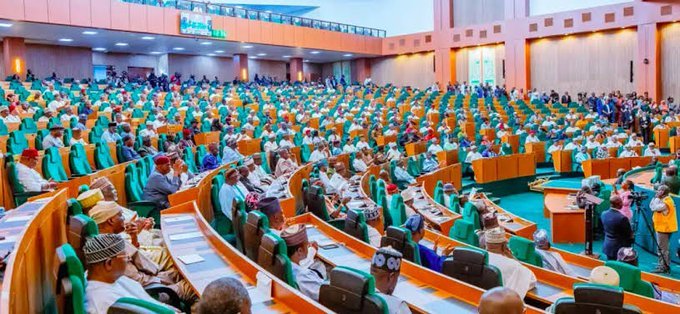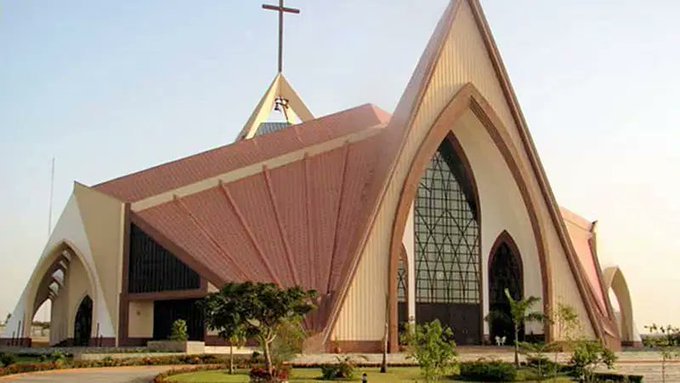The Group Chief Executive Officer of the Nigerian National Petroleum Company Limited (NNPC Ltd), Mr. Bayo Ojulari, has attributed the recent surge in the price of Liquefied Petroleum Gas (LPG), commonly known as cooking gas, to a temporary disruption in loading and distribution caused by the strike action embarked upon by members of the Petroleum and Natural Gas Senior Staff Association of Nigeria (PENGASSAN).
Speaking to State House correspondents on Sunday after a closed-door meeting with President Bola Tinubu at the Presidential Villa, Abuja, Ojulari explained that the industrial action, which stalled operations across key depots, created a short-term scarcity that artificially pushed up prices in major cities.
“The increase you saw was relatively artificial because for the period of the strike, movements and loading were delayed by about two to three days,” the NNPC boss said. “And because of that, you see that impact. As things return back to normal, it takes some time for distribution to be fully restored.”
Ojulari noted that while supply logistics are gradually normalising, the ripple effects of the brief shutdown are still being felt in parts of the country. He assured Nigerians that the NNPC is working closely with marketers, transporters, and regulators to ensure that supply stabilises and prices return to reasonable levels soon.
According to him, “The delay was not due to any shortage in production or importation. It was purely a matter of logistics and movement disruptions caused by the strike. Once those were cleared, our teams resumed full loading and dispatch across all terminals.”
The recent hike saw the average retail price of cooking gas rise to between ₦1,400 and ₦1,600 per kilogram in several states, up from about ₦1,200 just weeks earlier. In some urban areas such as Lagos, Abuja, and Port Harcourt, 12.5kg cylinders were reportedly selling for as high as ₦18,000.
PENGASSAN Strike and Its Ripple Effects
The Petroleum and Natural Gas Senior Staff Association of Nigeria had declared an indefinite strike last month over unresolved welfare and administrative issues affecting its members across the oil and gas industry. The strike led to the shutdown of operations in several NNPC subsidiaries, depots, and terminals, resulting in supply delays for petrol, diesel, and LPG.
Although the strike has since been suspended following interventions from the Federal Government and key industry stakeholders, the temporary halt in operations disrupted the supply chain, creating scarcity fears among retailers and consumers alike.
Analysts say the price hike was driven more by panic buying and speculation than by actual shortages. “When supply is interrupted even for a few days, market forces respond quickly, especially in sectors like LPG where distribution is tightly linked to logistics efficiency,” said an independent energy economist based in Lagos. “Prices tend to spike temporarily before stabilising once normal supply resumes.”
NNPC’s Response and Assurances
Ojulari reiterated NNPC’s commitment to maintaining steady energy supply across the country, saying the company has intensified its monitoring of gas distribution channels to prevent hoarding and arbitrary price manipulation.
He explained that NNPC’s gas subsidiary and its private partners have ramped up truck-out operations from coastal terminals to inland depots to close the supply gaps created during the industrial action. “Our focus now is to ensure that every state gets adequate allocation. The more stable the supply, the quicker prices will adjust downward,” he said.
He also emphasised that the NNPC remains committed to President Tinubu’s economic recovery agenda, which prioritises energy affordability and accessibility for Nigerian households. “Energy stability is at the heart of our national development goals. That’s why NNPC is doing everything to ensure products remain available and affordable,” Ojulari added.
Calls for Market Stabilisation
Stakeholders in the downstream sector have urged the Federal Government to strengthen its intervention mechanisms to cushion the impact of sudden supply disruptions. The President of the Nigerian Association of Liquefied Petroleum Gas Marketers (NALPGAM), Oladapo Olatunbosun, called for improved coordination between labour unions, government agencies, and operators to prevent future occurrences.
“Industrial actions are legitimate, but the sector needs an emergency management framework that ensures continuity of supply, especially for essential products like LPG,” he said. “Otherwise, even a short disruption can trigger widespread inflation and hardship for millions of households.”
Olatunbosun further appealed to the NNPC to increase domestic gas production and accelerate infrastructure investments in storage and transportation to reduce dependence on imports and port-based facilities.
Consumers Bear the Brunt
For many Nigerian households, the sudden spike in cooking gas prices has added to the burden of rising living costs. With inflation hovering near record highs and electricity tariffs on the rise, families who rely on LPG for cooking have had to cut consumption or switch temporarily to cheaper but less clean alternatives such as charcoal and kerosene.
“I usually fill my 12.5kg cylinder with ₦15,000, but last week it cost ₦18,000,” said Mrs. Eniola Adedeji, a Lagos resident. “If this continues, people will go back to using firewood. Government needs to act fast.”
Experts warn that such reversions could undermine Nigeria’s clean energy transition goals and increase environmental and health risks, particularly in rural communities.
Outlook
Industry watchers expect LPG prices to stabilise in the coming weeks as loading operations fully recover and more cargoes are dispatched across the country. However, they stress that long-term stability will depend on addressing structural challenges such as inadequate storage facilities, poor transportation infrastructure, and reliance on imported gas.
Ojulari expressed optimism that government’s ongoing investments in gas infrastructure and local production will soon yield results. “We are working on multiple fronts — expanding our processing plants, increasing domestic utilisation, and improving logistics — to make sure Nigeria’s gas sector remains resilient,” he said.
As the dust settles on the recent disruptions, all eyes remain on NNPC and its partners to ensure the lessons from the strike are applied to prevent future volatility in the cooking gas market.














